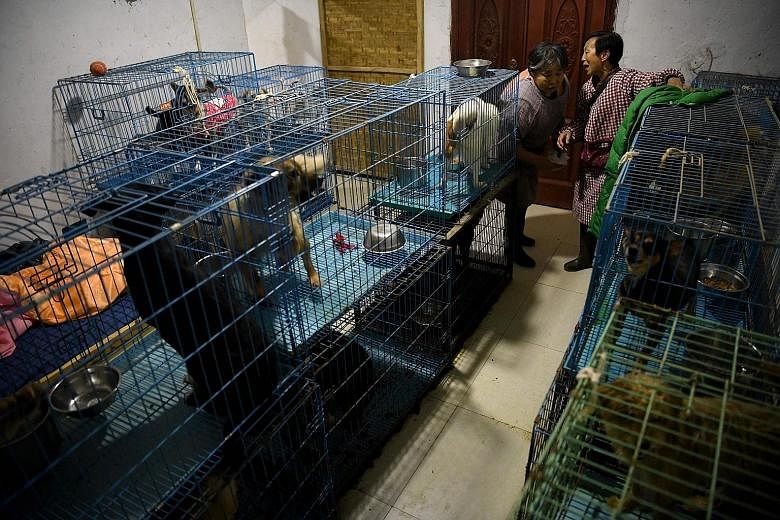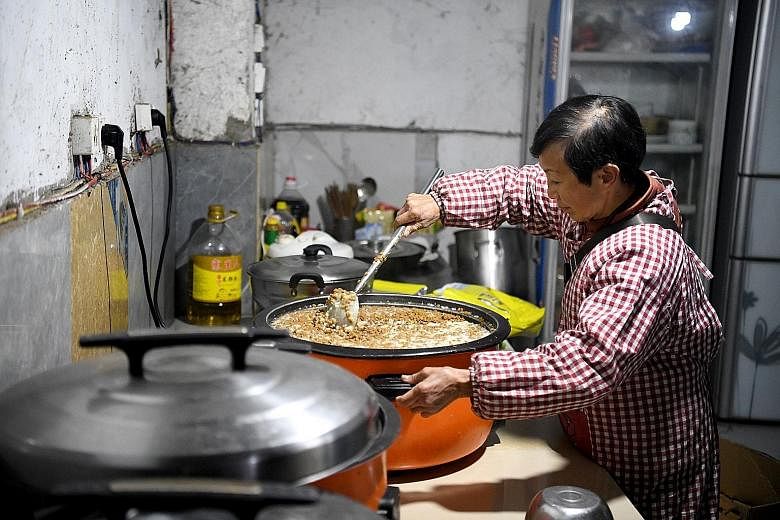CHONGQING • Twenty years ago, Ms Wen Junhong saved an abandoned dog from the streets of Chongqing in south-western China. She now shares her home with more than 1,300 dogs, and they keep on coming.
After taking in that first dog, a Pekinese she named Wenjing - "gentle and quiet" in Chinese - Ms Wen found she could not stop.
She says she was driven by worries about what strays face on the streets in China, from accidents to being snatched up for the dog meat trade.
"It's important to look after these dogs," she says. "Each of us should respect life, and the earth is not only for humans but also for all animals."
Dog ownership was previously termed a bourgeois pastime and banned under the leadership of communist China's founder Mao Zedong.
Views on pets have changed dramatically since and ownership has boomed - but the country still does not have a national animal welfare law and there are tens of millions of stray dogs and cats, according to charity AnimalsAsia.
Urban strays are rarely sterilised, exacerbating the problem and placing more pressure on overwhelmed and underfunded animal rescue centres.
As well as the abandoned pets and strays that are regularly left in her front yard, Ms Wen says she receives calls "every day to help more dogs".
And it is not just canines that the 68-year-old has a soft spot for.
She also lives with 100 cats, four horses and a scattering of rabbits and birds. "Some people say I'm a psychopath," she admits.
Her day starts at 4am with the unenviable task of clearing 20 to 30 barrels of overnight dog waste and cooking over 500kg of rice, meat and vegetables for the animals.
The waste gets burned in the back yard, sending a continuous plume of smoke into the sky.
A handful of dogs run free around the building, while a tethered pit bull terrier at the back door growls and barks at strangers.
Every room in the two-storey house is full of cages, piled next to and on top of one another.
Surrounded by fences and locked gates, her hillside location is the latest in a series of homes after complaints from neighbours forced her and her charges to keep moving.
Ms Wen finances the operation with proceeds from selling her apartment, loans of up to 60,000 yuan (S$12,000) and her pension and life savings from an earlier career as an environmental technician.
AGENCE FRANCE-PRESSE


